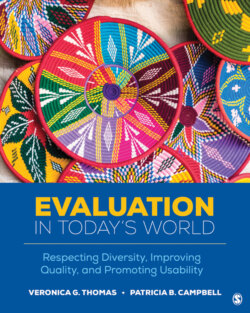Читать книгу Evaluation in Today’s World - Veronica G. Thomas - Страница 137
На сайте Литреса книга снята с продажи.
Aaron A. Brown
ОглавлениеAs the third African American to receive a PhD in education from the University of Chicago, Aaron A. Brown, and his work toward social justice ends, places him among the African American scholars who contributed to the educational evaluation literature during the 1940–1960 Tyler years (Hood, 2001). Later in his career, Brown served as president of Albany State College (1943–1954), one of three HBCUs in the university system of Georgia. Eleven years after his presidential installment, Reid was fired by the Board of Regents of the university system because of his involvement in the voter registration drives for Albany’s African American citizens. Brown’s dissertation (in 1944), “An Evaluation of the Accredited Secondary Schools for Negros in the South,” included an evaluation of the 93 accredited secondary schools for African Americans living in the South. He sought to find out how well the schools were performing when measured by the best objective criteria available during that time by comparing data on the accredited secondary schools for “Negroes” with normative data on other types of secondary schools.
Reprinted with permission of Albany State University Libraries, Archives, Ram Scholar Repository.
That in 1931 the Southern Association of Colleges and Schools agreed to accept the responsibility for the accreditation of colleges and secondary schools for African Americans and subsequently supported an evaluation of the school’s status was historic. Brown’s (1944a; 1944b) dissertation was carried out under the general supervision of Ralph Tyler and others, and it was considered an outstanding contribution that was subsequently published into a book (Brown, 1944c) by the University of Chicago Press. Wright (1945) pointed to an important evaluative question of the time that Brown sought to answer: What is the quality of work being done by these schools, which represent the best among such institutions for Negroes in the Southern region? Brown conducted analysis of his evaluative findings against the backdrop of the socioeconomic setting of schools for African Americans. His evaluation has been hailed as a needed contribution to the literature concerned with providing optimal educational advantages for the African Americans in the country, the majority of whom were living in the South (Wright, 1945). Hood (2005) stressed that, more than 60 years ago,
Aaron Brown called for cultural responsiveness in educational evaluation but his plea was unheeded. Brown persuasively argued that African Americans had special and critical needs due to their unique experiences in American society. He appropriately raised the question in the 1940s of whether there should be special consideration given when evaluating schools for African Americans. (p. 96)
